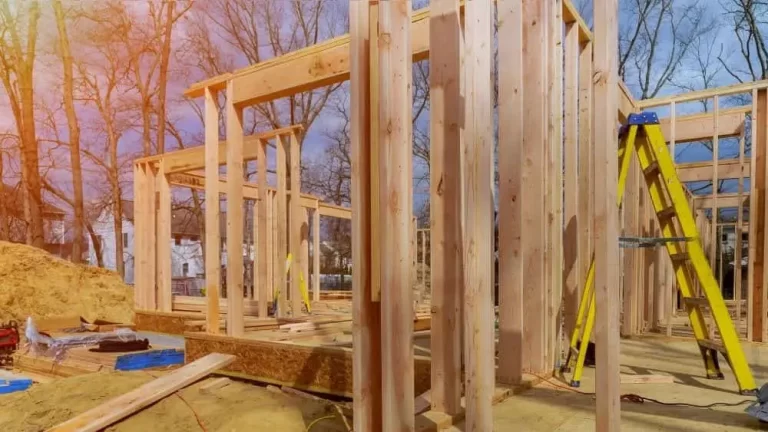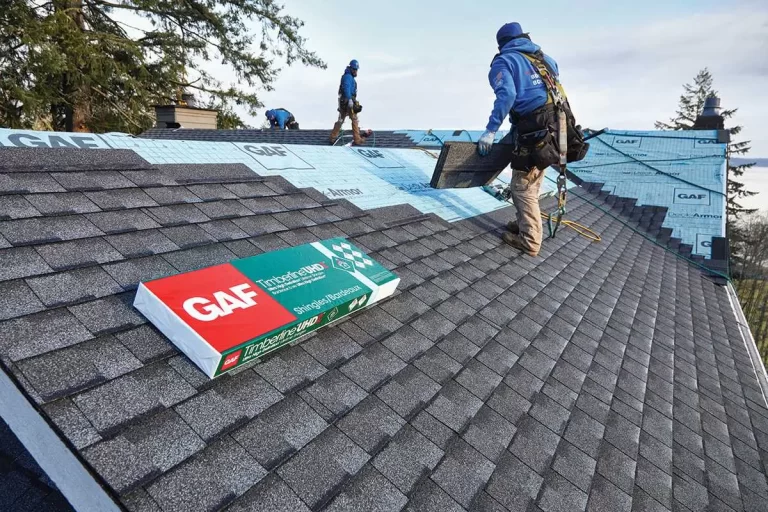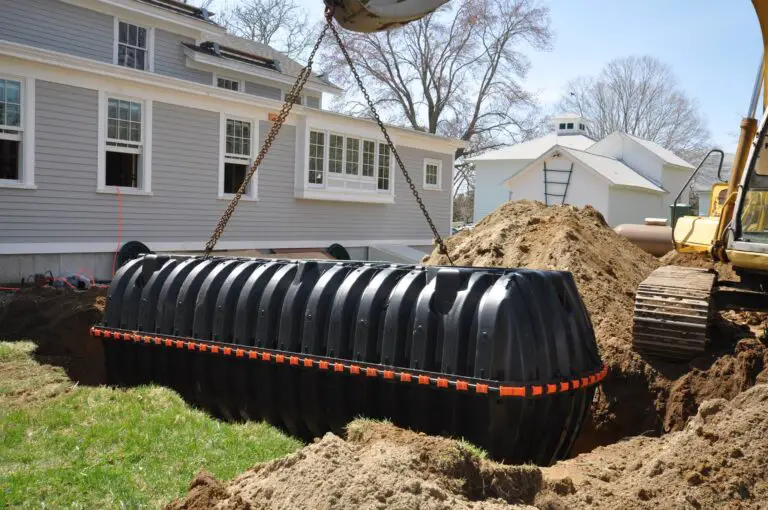Why My Smoke Detector Beeps Twice Then Stopped?
If you have ever experienced your smoke detector beeping twice and then stopping, you might have wondered what caused it and whether it was a sign of a problem. In this blog post, we will explain some of the possible reasons for this phenomenon and what you can do to prevent it from happening again.
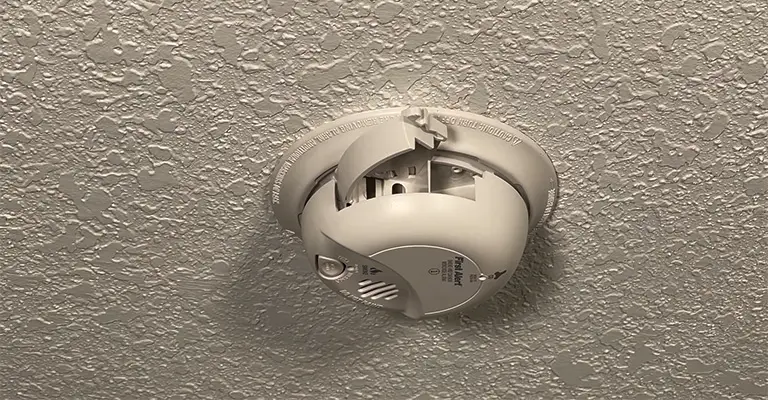
What Does it Mean by Beeping Twice?
First of all, let’s clarify what we mean by beeping twice.
Some smoke detectors have different types of sounds to indicate different situations.
For example, some models may chirp once every minute to indicate low battery, or beep three times every 45 seconds to indicate a malfunction.
However, in this post, we are referring to the loud and continuous beeping sound that is meant to alert you of a potential fire.
Why Smoke Detector Beep Twice and Stop?
So why would a smoke detector beep twice and then stop? Here are some of the common scenarios:
False alarm
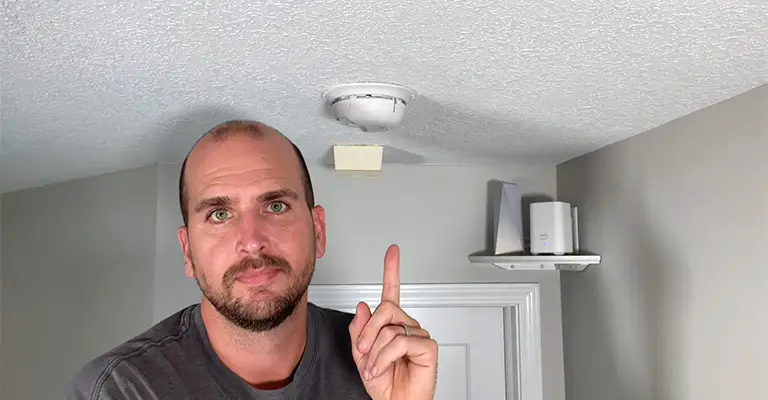
Sometimes, smoke detectors can be triggered by steam, dust, cooking smoke, or other particles that are not actually fire.
In this case, the smoke detector may beep twice and then stop if the particles clear away quickly or if you press the test or silence button on the device.
How to fix Smoke Detector False Alarm Issue
To avoid false alarms, you should install your smoke detectors away from sources of steam or smoke, such as bathrooms or kitchens, and clean them regularly to remove dust buildup.
Interference
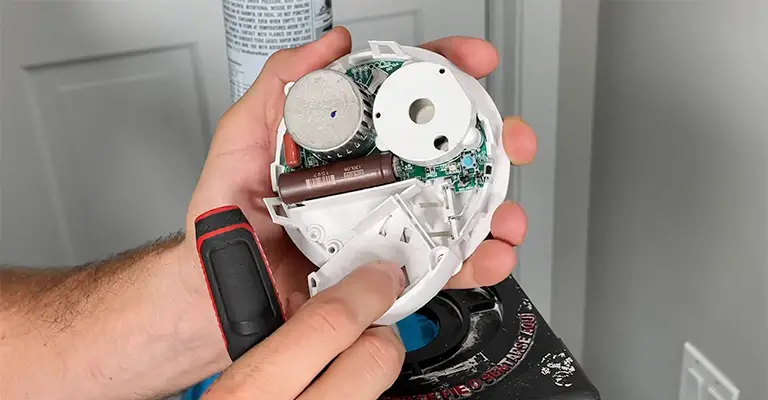
Some smoke detectors are interconnected, meaning that they communicate with each other wirelessly or through wires.
This way, if one detector senses smoke, all the others will sound an alarm as well.
However, sometimes this communication can be disrupted by other devices that use similar frequencies, such as cordless phones, baby monitors, or wireless routers.
In this case, the smoke detector may beep twice and then stop if it loses or regains connection with the other detectors.
How to fix Smoke Detector Interference Issues?
To avoid interference, you should check the compatibility of your devices and avoid placing them too close to each other.
Power outage
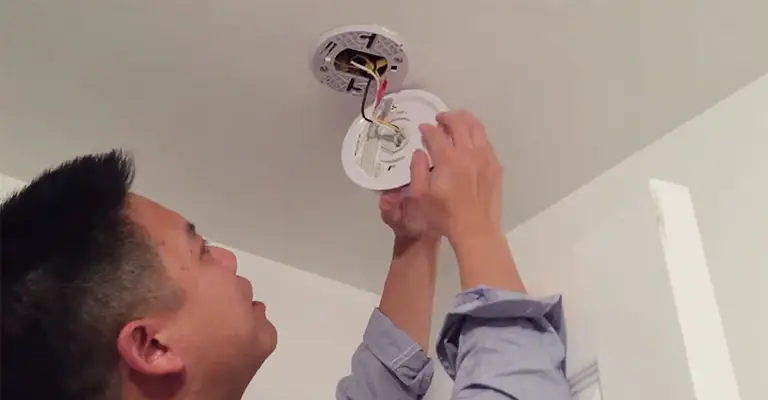
Some smoke detectors are hardwired to your home’s electrical system, meaning that they rely on the power supply from your outlets.
However, some models also have backup batteries that kick in when the power goes out.
In this case, the smoke detector may beep twice and then stop if it switches from one power source to another.
How to Fix
To avoid power outage issues, you should test your smoke detectors regularly and replace the backup batteries at least once a year.
Faulty or Damaged
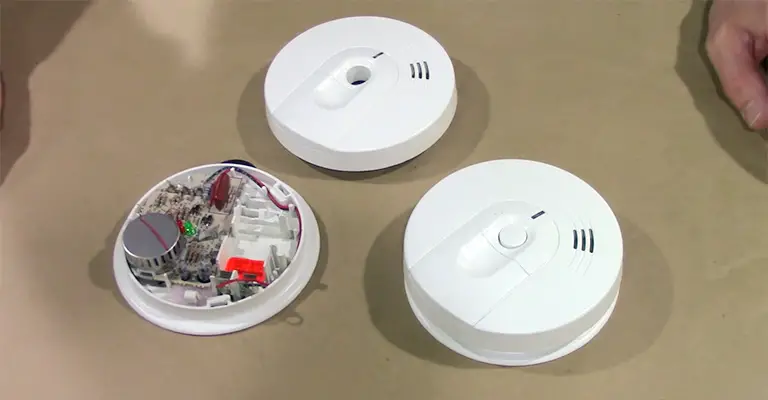
As you can see, there are many possible reasons why your smoke detector beeps twice and then stops.
However, not all of them are harmless.
Sometimes, a smoke detector may beep twice and then stop because it is faulty or damaged.
In this case, you should not ignore it or assume that it is working properly. You should inspect your smoke detector for any signs of damage, such as cracks, corrosion, or loose wires.
You should also replace your smoke detector if it is more than 10 years old or if it fails to respond to a test.
Additional Reasons
Smoke detectors may beep intermittently for various reasons. Here are the some additional reasons. Like –
- Low battery: The smoke detector might be signaling that the battery is running low and needs replacement. Most devices emit a periodic chirping sound to alert you to change the battery.
- Dust or debris: Dust or debris may have temporarily interfered with the sensor, causing a false alarm. If the beeping stops, it might mean the obstruction has cleared. However, it’s a good idea to clean the detector regularly to prevent false alarms and ensure proper functionality.
- Temporary environmental factors: Environmental factors like humidity, steam, or cooking smoke may have briefly triggered the alarm. If the beeping stops, it might mean that the environmental factor causing the alarm is no longer present.
- End-of-life warning: Some smoke detectors have an end-of-life warning feature that alerts you when the unit needs to be replaced, typically after 10 years. The beeping pattern may vary between models, so consult your user manual to see if this could be the cause.
General Fix of These Additional Problems
If the beeping continues or becomes more frequent, it’s important to address the issue.
- Replace the batteries
- clean the detector, and check for any potential issues with the device.
- If the problem persists, consider replacing the smoke detector with a new one.
Final Words
Remember, your smoke detector is one of the most important devices in your home when it comes to fire safety.
It can save your life and your property by giving you an early warning of a fire. Therefore, you should always pay attention to its sounds and signals and take action accordingly.
If you have any doubts or questions about your smoke detector’s performance or maintenance, you should contact a professional electrician or fire safety expert for advice.

